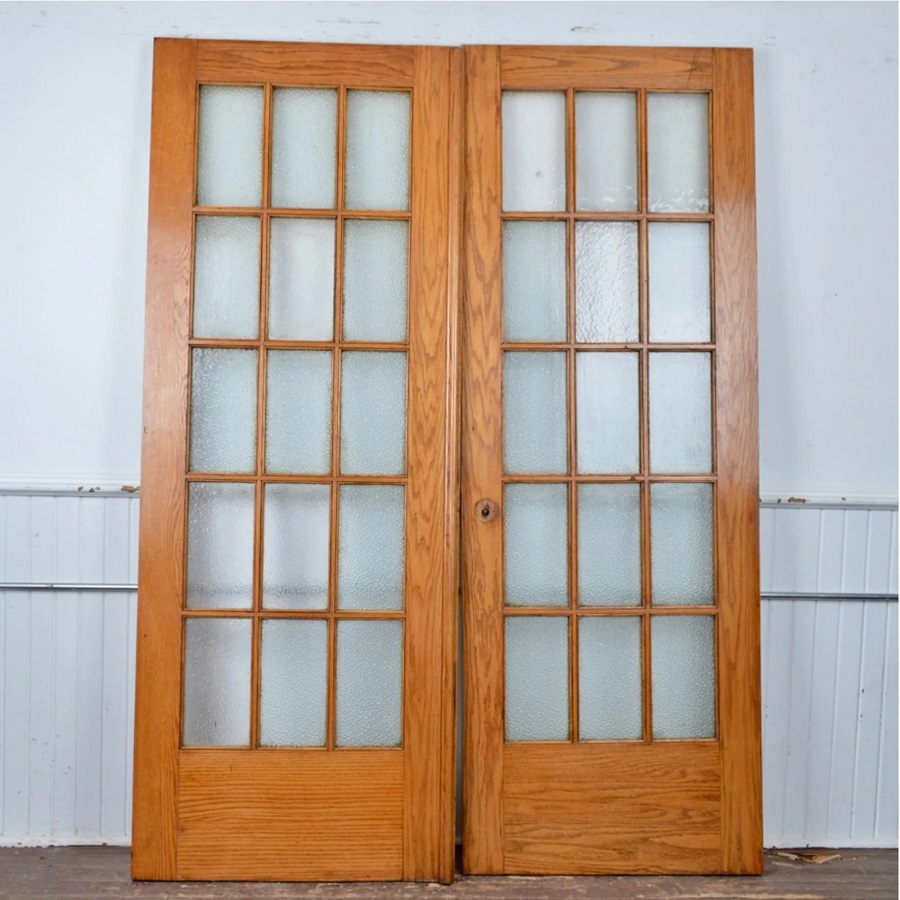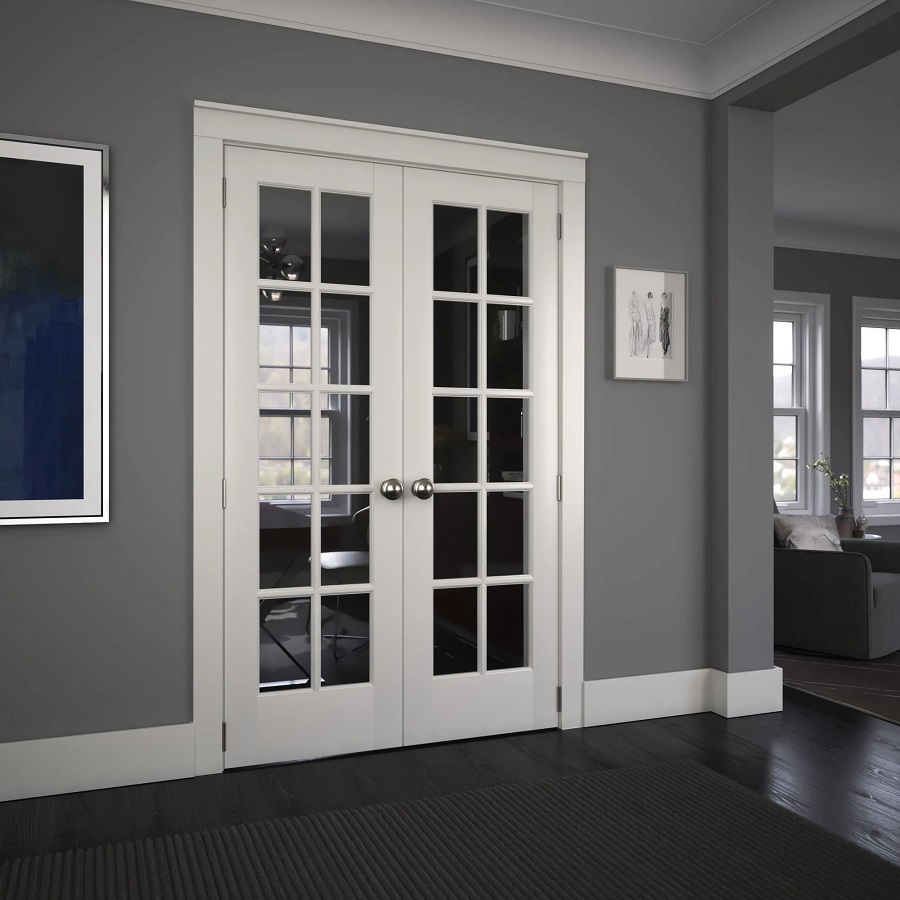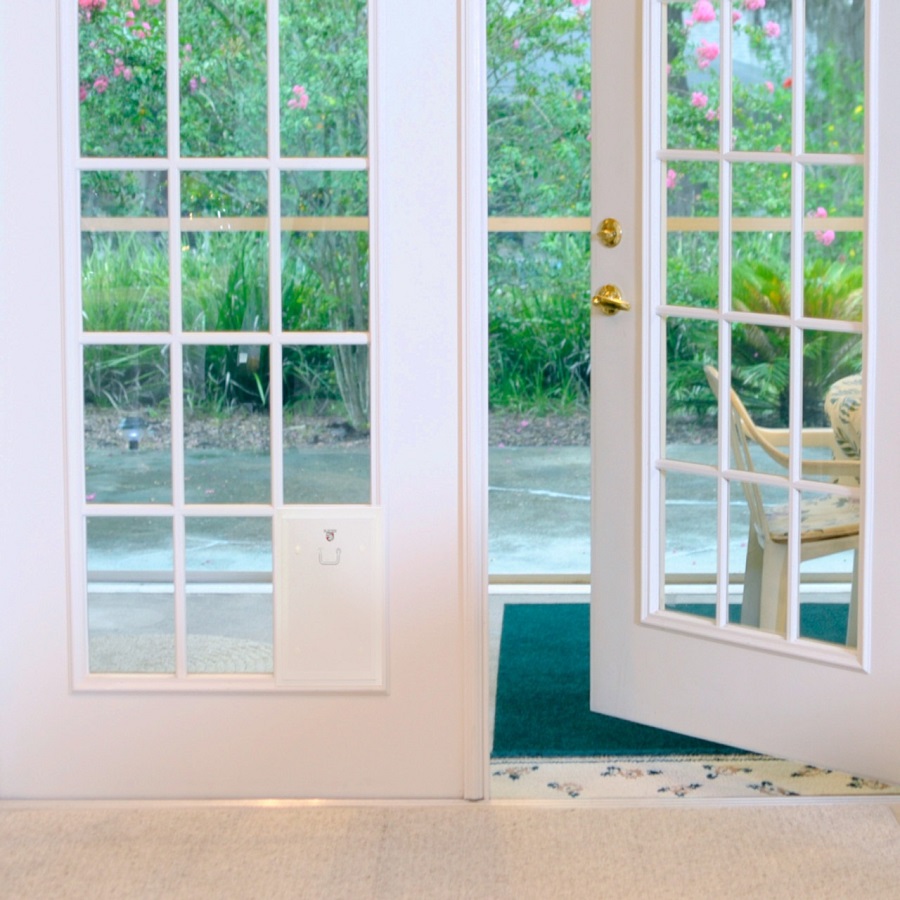Standard Sizes for French Doors
French doors enhance your home by blending style with function. These doors come in several standard sizes. Knowing these sizes helps you choose the right doors for your space.
Common Widths and Heights for Exterior French Doors
Exterior French doors usually measure 80 inches in height. Common widths start at 36 inches. You may also find 48-inch and 60-inch widths. These dimensions suit different house designs. Exterior French door can vary in size for different needs. For really big spaces, you may need a custom size.
Typical Sizes for Interior French Doors
Interior French doors divide rooms while letting light flow through. These doors generally stand at 80 inches tall. Widths often range from 30 to 36 inches. For homes with higher ceilings, doors may be taller, like 84 or 96 inches in height. Choosing the size depends on your room size and design goals. Bigger doors can make a space feel open and airy. Smaller doors fit well in tighter spaces or with certain styles.

Measuring Your Space for French Doors
Measuring correctly ensures your French door fit perfectly. Follow a simple guide to avoid common mistakes.
Step-by-Step Guide to Measure Door Openings
Start with the right tools: a tape measure, pen, and paper. Clear the space around your door frame. Measure the width at the top, middle, and bottom. Use the smallest width for accuracy. Next, measure the height from the sill to the top of the frame on the left, middle, and right. Again, use the smallest height. Record all measurements. Verify them before you order your doors to avoid errors.
Understanding Rough Opening Dimensions
The rough opening is larger than the door it will host. Add 2 inches to your door’s width and 2.5 inches to its height for the rough opening. This space is crucial for installing the frame correctly. It ensures the door operates smoothly and without any issues.
Custom French Door Sizes
Choosing the right size of french doors is essential for the look and functionality of a space. Most homes can accommodate standard sizes but sometimes, a custom solution is necessary.
When and Why You Might Need Customization
Custom-sized french doors are needed when:
- Standard sizes do not fit the unique dimensions of your space.
- You want a design that differs from typical offerings.
- You’re matching french doors to a non-standard opening created by a renovation or new build.
- The size of french doors you desire is not available in standard options.
Having custom doors can add a personalized touch to your home and ensure a perfect fit.
How to Order Custom-Sized French Doors
To order custom french doors, take these steps:
- Measure your space carefully, noting the width, height, and depth.
- Contact a door manufacturer or supplier that offers customization services.
- Provide your exact measurements and specify any additional design requests.
- Discuss material options suitable for your climate and home style.
- Request a detailed quote with the price and delivery timeframe.
- Once satisfied, place your order and arrange for professional installation.
Remember that custom doors may take longer to produce and could cost more than standard ones. But they can offer a perfect solution when the size of french door for your space challenges conventional dimensions.

Materials for French Doors
Choosing the right material for your French doors is important. It affects the door’s look, feel, and durability. Here are the materials you should consider.
Wood
Wood offers a classic and warm look. It needs regular care to stay beautiful. Popular types include oak, cedar, mahogany, and pine.
Aluminium
Aluminium is durable and stands up well to weather. It’s light and easy to handle. This makes it a good choice for many homes.
Steel
Steel is very strong and offers high security. It’s great against weather and lasts a long time. Steel is perfect for exterior French door.
Fibreglass
Fibreglass is tough and can take a lot of use. It’s good against weather and does not crack or warp. This makes it a cost-effective option.
Vinyl
Vinyl is low-maintenance and durable. It won’t rust like metal or rot like wood. Vinyl is a smart pick for a long-lasting French door.
Types of French Doors
When picking the right French doors, it’s important to know the types available. This choice impacts how they’ll function in your home and connect your spaces.
Exterior vs. Interior French Doors
Exterior French door bring in natural light and join indoor with outdoor areas. They often feature tougher materials to withstand weather. In contrast, interior French door work inside your home. They separate rooms but let light flow between them. These are usually less hefty than exterior options.
French Doors vs. Patio Doors vs. Double Doors
French doors have glass panes and swing open. They offer a traditional charm. Patio doors slide open and save space, making them ideal for tight areas. Double doors are solid, swing open like French door, but without the glass panels.
Installation Considerations for French Doors
When prepping for the installation of French doors, ensure your space is ready for the new addition. Proper planning leads to a smoother installation process.
Preparing Your Home for French Door Installation
Before the French door arrive, clear the area. Move furniture and decor for easy access. Check the wall for levelness; uneven walls may need work. Measure the space to confirm the size of French doors ordered fits. Protect your floors and nearby furniture from debris and dust during installation.
Ensuring Proper Clearance and Swing Space
Clearance and swing space are vital for French door functionality. Make sure the doors have room to open fully without hitting objects. Allow for at least half an inch of clearance around the door frame for smooth operation. Consider the direction of the door swing; it should not block pathways or furniture. Confirm that flooring allows the doors to swing freely, with no scraping.
Additional Features and Accessories
Personalizing your French doors can be done with various features and accessories to match your home’s style.
Glass Pane Options
Selecting the right glass for your French doors is key for both aesthetics and efficiency. Here are some options:
- Dual-pane glass enhances insulation, reducing energy costs.
- Tempered glass offers extra safety by shattering into small, less harmful pieces.
- Low-E glass reflects heat, maintaining comfortable indoor temperatures.
- Frosted or textured glass provides privacy while still allowing light to enter.
- Decorative glass with etching or stained patterns can add a unique touch to your doors.
Decorative and Functional Door Accessories
Accessorize your French doors with items that add both charm and utility:
- Handles and locks come in varied styles, from modern to classic, ensuring security with elegance.
- Weather stripping seals gaps to prevent drafts and water leaks.
- Door sweeps block out noise and insects, also aiding in temperature control.
- Hinges in different finishes can complement other hardware in your home.
- Door stops prevent walls from getting damaged when doors swing open.
These options allow you to enhance the functionality and appearance of your French doors, making them a perfect fit for your home.

Frequently Asked Questions
Addressing common concerns helps ensure you pick the ideal French doors for your home.
Addressing Common Concerns and Queries
When choosing French door, questions often arise. Below are answers to some typical inquiries:
- Can French doors be used as exterior and interior doors? Yes, they serve both purposes and come in various sizes to fit different needs.
- Will the size of French door impact their function? Absolutely. Properly sized doors ensure smooth operation and adequate room passage.
- Are there customizable sizes if standard ones don’t fit? Yes, you can order custom French door to match unique space dimensions.
- What materials are best for French door? Wood, aluminium, steel, fibreglass, and vinyl are popular options, each with benefits.
- Can French door improve home energy efficiency? With proper sealing and energy-efficient glass, they can help maintain indoor temperatures.
Knowing these basics can guide you to the right door choices for your home.
Tips for Optimal French Door Performance
To get the best from your French doors, follow these tips:
- Regular maintenance keeps doors functioning well and looking good.
- Proper installation is key; use professional services for best results.
- Select appropriate hardware such as durable locks and weatherproof seals.
- Double-check measurements before ordering to ensure a perfect fit.
- Consult with experts if you’re unsure about the right size or material.
By following these tips, your French door will perform optimally for years.
